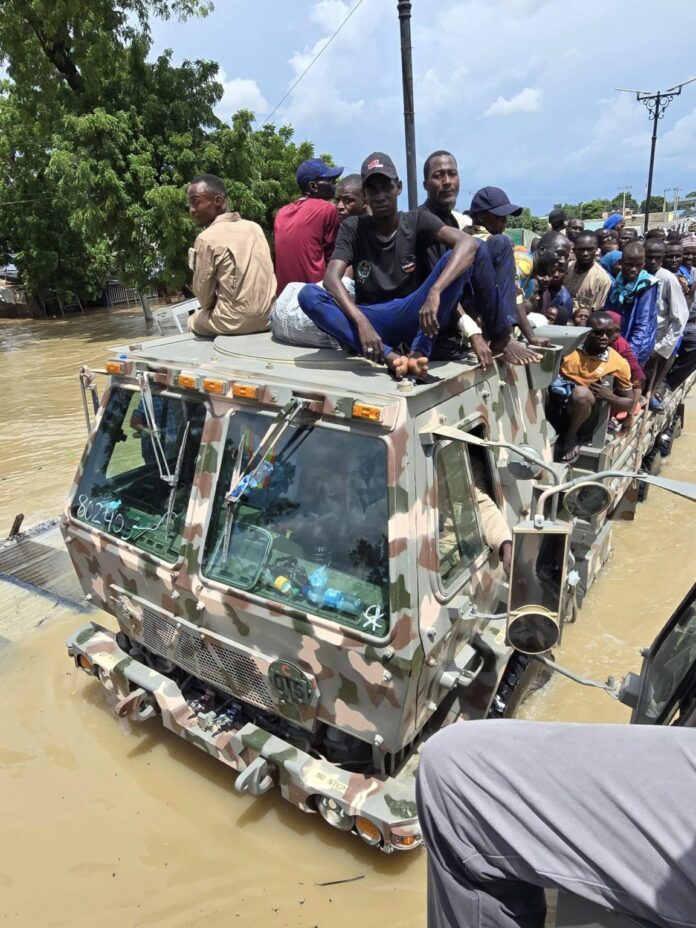In the wake of severe flooding that has wreaked havoc on communities in Maiduguri, Borno State, the Nigerian military has taken an active role in providing much-needed humanitarian aid to those affected. The floods, which came swiftly and with little warning, have left many families in a state of despair, having lost their homes, possessions, and in some cases, even loved ones. The devastation has prompted an urgent response from both government and military forces, who are working around the clock to bring relief and support to the beleaguered residents.
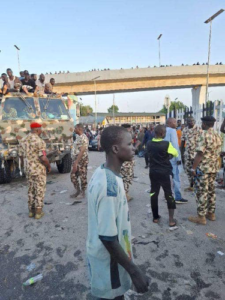
As the floodwaters surged through Maiduguri, numerous neighborhoods were submerged, forcing residents to evacuate with little more than the clothes on their backs. Makeshift shelters have sprung up across the city, with families huddling together in any available dry space. For many, the future seemed uncertain as they grappled with the immediate aftermath of the disaster, struggling to find food, clean water, and shelter. This dire situation has necessitated a swift and coordinated response, with the military stepping in to provide critical assistance.
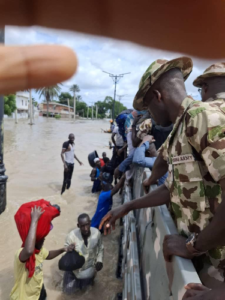
Soldiers have been seen on the ground, actively distributing essential supplies to the flood victims. These supplies include food items, clean drinking water, blankets, and other necessities, offering a glimmer of hope to those who have lost almost everything. The military’s presence has been a source of comfort for many residents, as it not only provides much-needed resources but also reassures the community that they are not alone in this crisis.
In addition to distributing supplies, the military has been instrumental in rescue operations. Using boats and other amphibious vehicles, soldiers have been ferrying stranded individuals to safer locations, navigating through treacherous waters that have inundated roads and homes. These efforts have been crucial in ensuring that those trapped by the floods, particularly the elderly, children, and individuals with mobility issues, are safely evacuated to dry ground. The sight of military personnel aiding the stranded and carrying people to safety has become a common and reassuring image in these affected areas.
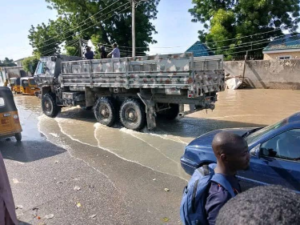 The military’s involvement goes beyond the immediate relief efforts. Authorities have emphasized the importance of a coordinated response, and the military is working closely with local leaders, community organizations, and international aid agencies to streamline rescue and relief operations. This collaboration aims to ensure that aid reaches those who need it most and that no community is left isolated or neglected in the midst of this disaster.
The military’s involvement goes beyond the immediate relief efforts. Authorities have emphasized the importance of a coordinated response, and the military is working closely with local leaders, community organizations, and international aid agencies to streamline rescue and relief operations. This collaboration aims to ensure that aid reaches those who need it most and that no community is left isolated or neglected in the midst of this disaster.
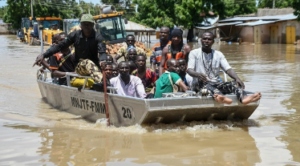 In the days following the floods, attention has also turned to the potential health risks that typically accompany such natural disasters. Stagnant water and inadequate sanitation can lead to the outbreak of waterborne diseases, posing a serious threat to already vulnerable populations. To address this, the military has been deploying medical teams to provide immediate healthcare services to those affected. These teams are not only treating injuries and illnesses caused by the floods but are also working to prevent the spread of diseases like cholera, typhoid, and other infections that can arise in the aftermath of flooding.
In the days following the floods, attention has also turned to the potential health risks that typically accompany such natural disasters. Stagnant water and inadequate sanitation can lead to the outbreak of waterborne diseases, posing a serious threat to already vulnerable populations. To address this, the military has been deploying medical teams to provide immediate healthcare services to those affected. These teams are not only treating injuries and illnesses caused by the floods but are also working to prevent the spread of diseases like cholera, typhoid, and other infections that can arise in the aftermath of flooding.
The presence of military medical personnel has been a vital component of the overall response strategy. In many cases, they are setting up temporary clinics and mobile health units in areas where local healthcare facilities have been overwhelmed or are inaccessible due to the floodwaters. This rapid medical intervention is critical in managing the health crisis and ensuring that those who are most at risk receive the care they need promptly.
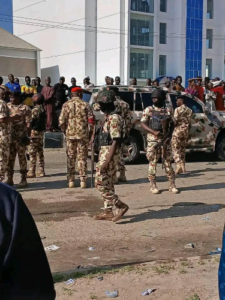
Local leaders have been vocal in their appreciation of the military’s efforts. Community heads and elders have acknowledged the role that the armed forces are playing in not just providing immediate relief, but also in helping to coordinate a more long-term recovery strategy. This includes working on plans to rebuild damaged infrastructure, restore basic services, and ensure that displaced families have access to safe housing and essential resources as they begin the arduous process of rebuilding their lives.
Aid organizations, both local and international, are also playing a key role in this coordinated response. The military has been collaborating with these organizations to distribute aid efficiently and to assess the longer-term needs of the affected communities. This partnership aims to leverage the strengths of both the military’s logistical capabilities and the specialized expertise of humanitarian groups to deliver a comprehensive and effective response.
While the situation remains challenging, the combined efforts of the military, local authorities, and aid organizations are making a significant difference. The immediate focus is on providing shelter, food, and medical care, but there is also an understanding that recovery will be a long-term process. Plans are being put in place to address not only the physical rebuilding of homes and infrastructure but also the emotional and psychological toll that such a disaster can have on individuals and communities.
For many residents of Maiduguri, the flood has been a harsh reminder of the vulnerability of their environment and the urgent need for more resilient infrastructure and emergency preparedness measures. The disaster has spurred conversations about how to better protect communities from future flooding, including the construction of better drainage systems, the reinforcement of flood defenses, and the implementation of early warning systems to give residents more time to evacuate in the event of similar natural calamities.
In the meantime, the work continues. Soldiers are still on the ground, providing aid, conducting rescue operations, and helping to coordinate relief efforts. Their presence has been a beacon of hope for many in this time of crisis, symbolizing the government’s commitment to supporting its citizens in the face of adversity. As Maiduguri and its residents begin the long road to recovery, the efforts of the Nigerian military and its partners will remain a critical part of the process, offering support, hope, and the promise of a better future for those affected by this devastating flood.

